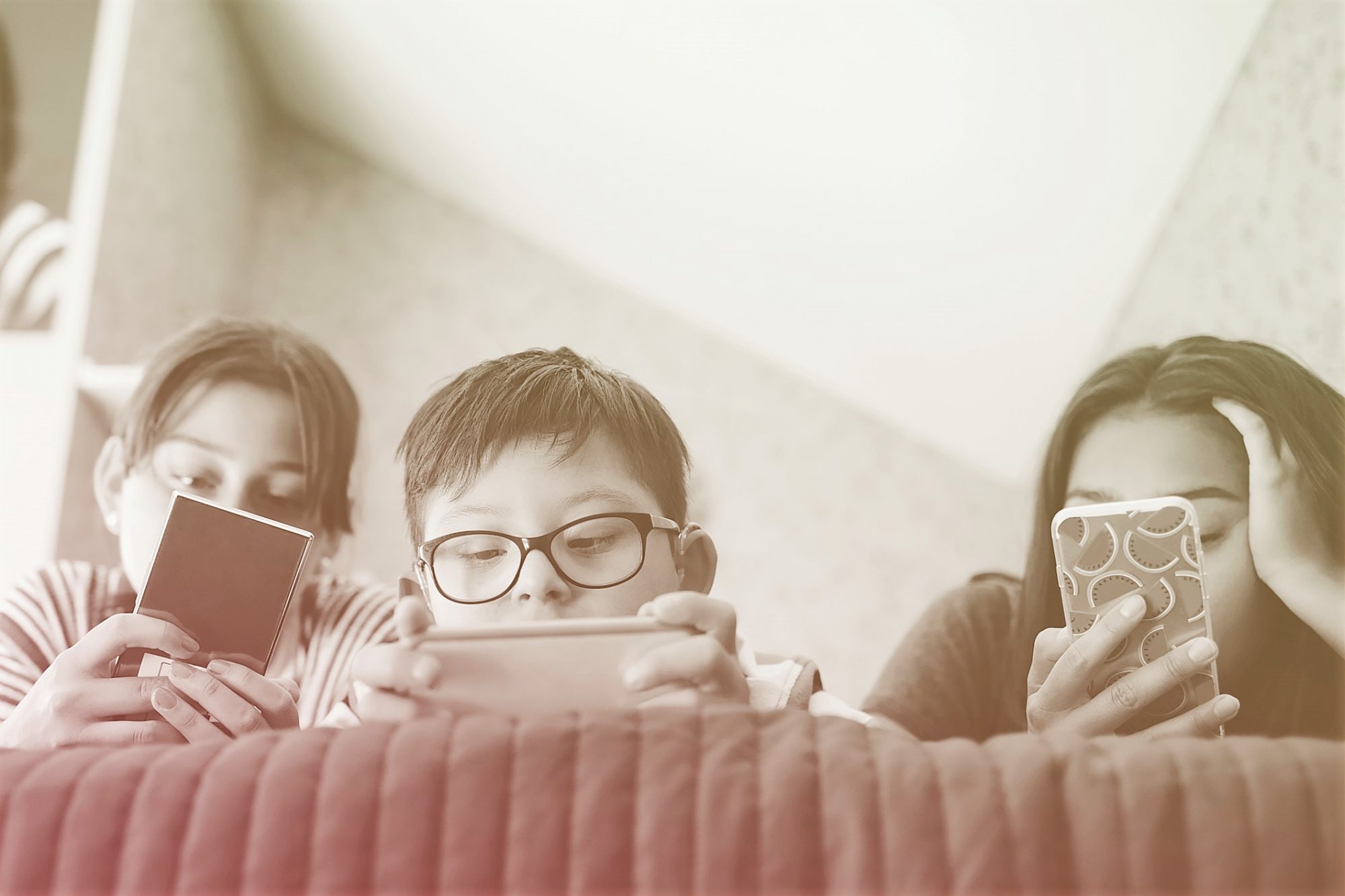
One less thing for parents of teens to worry about during the pandemic: Not all screen time is bad. With teens spending more than 7 hours a day on screens—on everything from social media and TV to YouTube and video games—even before COVID, technology use is really through the roof these days. Now, according to a new report from the nonprofit Common Sense Media, parents should focus more on what their kids are consuming and less on how many hours they're logging.
"All screen use is not equal, especially at a time when other avenues of connection and learning are shut off," Michael Robb, an author of the report and senior director of research at Common Sense Media, told CNN.
All parents—and that includes parents of older children—have felt the effects of months-long isolation, more time stuck at home, and the new normal COVID-19 forced on us. The lives of our teens and tweens were disturbed, too, and they're old enough to understand and feel the stress of it all. Ripped out of schools, hangouts and parties canceled, and their typical routines in shambles, screens were not only a source of education through distance learning, they were a connection to friends and family. That's why Robb praised the use of digital media as a "social safety net" to interact with those they can't see in person.
More good news: remote learning does not count toward screen time. Your kid is learning during this time, after all. While the American Academy of Pediatrics (AAP) typically recommends limiting screen time in favor of promoting physical activity and adequate sleep, Nusheen Ameenuddin, M.D., M.P.H, a chair on the AAP council of communications and media, says that schoolwork does not count toward screen time limits, which are primarily in place for recreational use, but it's still important to balance time in front of the computer with other activities.
"You're sitting in front of a screen for several hours," Ameenuddin told CNN. "That's not good or healthy for anyone."
Despite all the refreshing news, the Common Sense Media report also found that children from lower-income households may be more vulnerable when it comes to the impact of their screen time due to a lack of support from parents. While a real link between technology and mental health issues is up for debate, more teens—especially girls—are reporting being depressed or anxious at the same time that social media use and screen time is also increasing. In fact, a 2018 Pew Research Center survey found that 95 percent of U.S. teens have a smartphone or access to one. According to the report, more research is needed to draw conclusions on the effects of digital devices on teenagers' mental health.
So, what exactly can parents do to ensure their kids are consuming quality content? Be involved, be aware of how your children are engaging with digital media, and try to help your kids find a balance of online and offline activities. Experts recommend following the "Three C's": Child, content, and context. That is, you know what's best for your child, but you can also try to help them prioritize quality content (which, by the way, Common Sense Media has loads of recommendations for).
On top of the "Three C's," a new study out of the University of Michigan found that parents engaging with their preschool-age children during screen time—as in, actually holding a conversation with your kid while watching a show together—could actually be beneficial to early childhood development and help foster curiosity. So there's no need to feel guilty about family movie night!
At the end of the day, we are still living in a pandemic, so it's important to be easy on your kids—and yourself.

